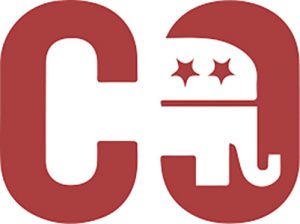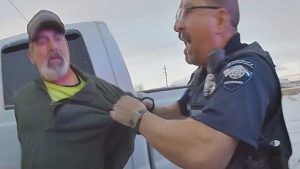Betty and Tim Williams
by Carol Dunn
HUERFANO- If the Pinon Canyon military expansion proceeds, Betty Williams and her son Tim will lose their entire 23,000-acre ranch. “I’ve raised five kids here,” Betty says, “I’ve put everything I’ve ever had into this ranch.” Raised on ranches near Pueblo and La Veta, she has devoted her entire life to the land. “I don’t want to go anywhere else,” she says.
Although Williams Land & Cattle was incorporated in 1970, the ranch has been in the Williams family for 93 years. Tim is the third generation to work the ranch, and now his son, daughter-in-law and two grandkids also make the ranch their home. Tim’s children have all been involved in the workings of the ranch and Tim says he was planning to leave the ranch to his five children and the grandkids. “Hopefully it will go on,” he says. Betty adds, “We’re totally devoted to it, and we’ll fight for it.”
Colorado Preservation, Inc. has catalogued sites on the Williams property with Indian writings, dinosaur tracks, an old Mexican village and stage stop, and an historical grave site. Portions of the ranch are also available to the public for bird watching and small game hunting.
Regarding the talk in the news lately about the Department of Defense downgrading the expansion to just 100,000 acres, Betty cautions that the move is more likely designed to placate people while the military gets a toehold. “They’ll just come back and get more land later,” she says. These latest expansion rumblings hearken back to the original maneuver site expansion about 20 years ago. According to Tim, a couple of ranches were purchased that presented easy access to Colorado Springs for maneuvers, then eminent domain was used to get more land. “It was an ugly situation,” he adds.
Having endured injuries, blizzards and droughts, Tim knows first-hand about the sacrifices required of ranchers. “Ranchers are married to the land. We don’t get to leave; we’re tied to it. Without that sacrifice there would be a lot of hungry people.”
Tim believes emphatically that to be able to ranch and farm “people have to be bred, born and raised to it – you learn it from your grandfather and father and pass it on down,” he explains. Once a ranch is lost, it can’t just be replaced elsewhere. According to Tim, ranchers and farmers – less than two percent of the population – provide the fuel, food and fiber to make the world go around. There is a pride in that, Tim explains. There is a tradition in keeping history alive. “Without us,” he says, “that history just becomes a faded memory.”




